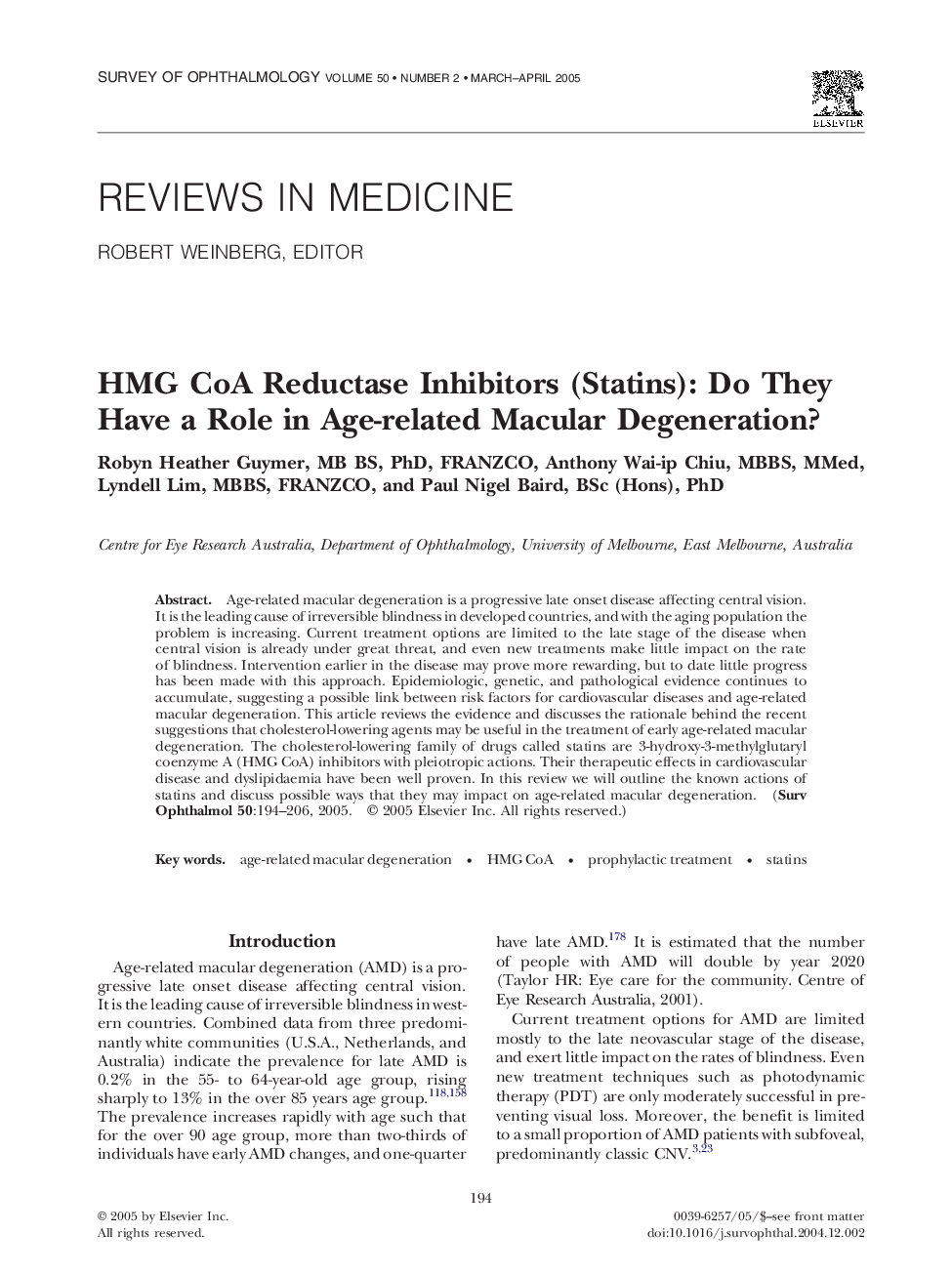| Article ID | Journal | Published Year | Pages | File Type |
|---|---|---|---|---|
| 10078285 | Survey of Ophthalmology | 2005 | 13 Pages |
Abstract
Age-related macular degeneration is a progressive late onset disease affecting central vision. It is the leading cause of irreversible blindness in developed countries, and with the aging population the problem is increasing. Current treatment options are limited to the late stage of the disease when central vision is already under great threat, and even new treatments make little impact on the rate of blindness. Intervention earlier in the disease may prove more rewarding, but to date little progress has been made with this approach. Epidemiologic, genetic, and pathological evidence continues to accumulate, suggesting a possible link between risk factors for cardiovascular diseases and age-related macular degeneration. This article reviews the evidence and discusses the rationale behind the recent suggestions that cholesterol-lowering agents may be useful in the treatment of early age-related macular degeneration. The cholesterol-lowering family of drugs called statins are 3-hydroxy-3-methylglutaryl coenzyme A (HMG CoA) inhibitors with pleiotropic actions. Their therapeutic effects in cardiovascular disease and dyslipidaemia have been well proven. In this review we will outline the known actions of statins and discuss possible ways that they may impact on age-related macular degeneration.
Related Topics
Health Sciences
Medicine and Dentistry
Ophthalmology
Authors
Robyn Heather MB BS, PhD, FRANZCO, Anthony Wai-ip MBBS, MMed, Lyndell MBBS, FRANZCO, Paul Nigel BSc (Hons), PhD,
